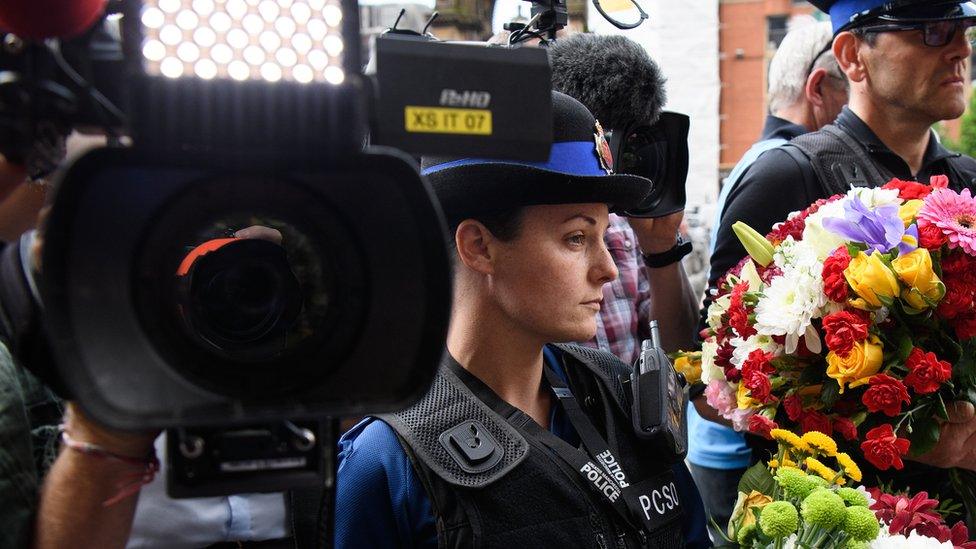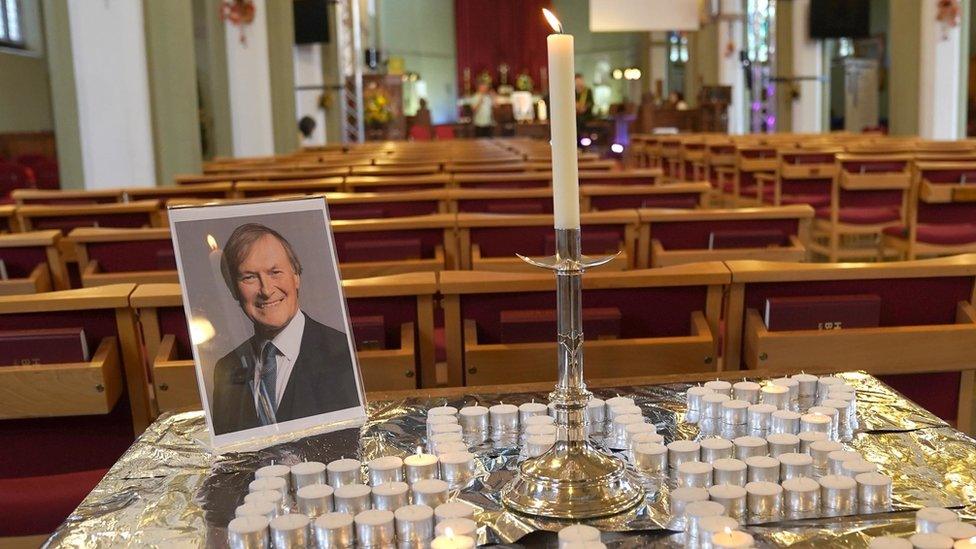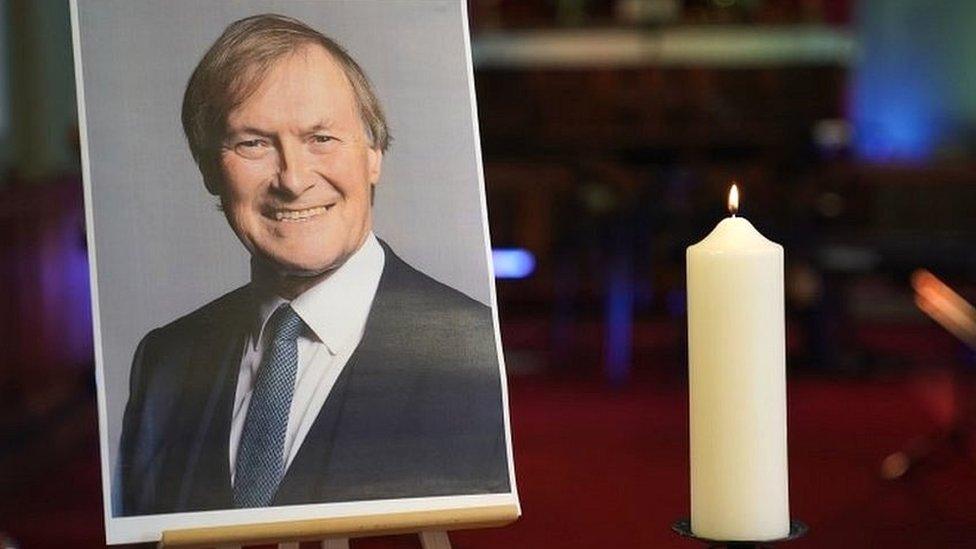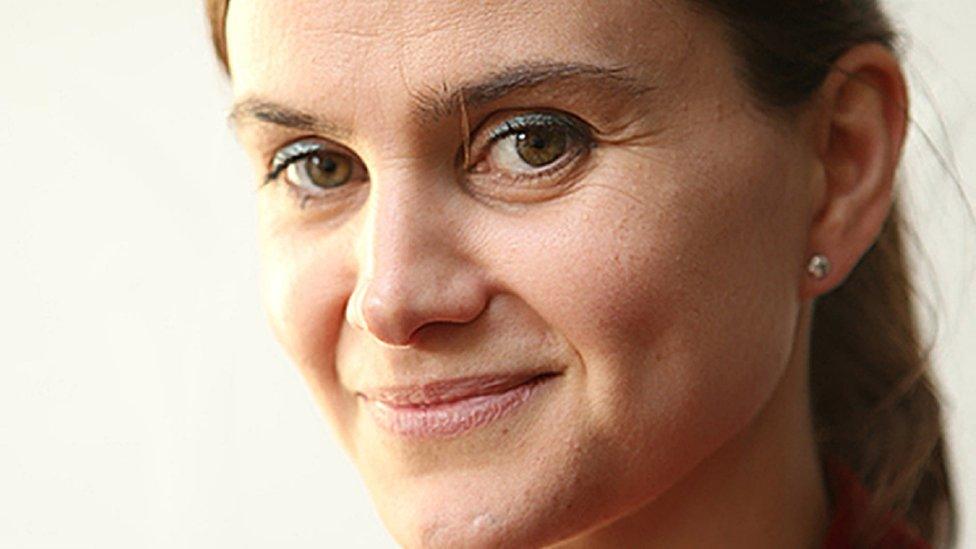Terror survivors call for new rules for journalists covering attacks
- Published

A memorial service in Manchester in 2017
Terrorism survivors and the families of victims say the media should change the way it reports attacks to prevent worsening their shock and grief.
Figen Murray, whose son Martyn Hett was killed in the Manchester Arena bombing, said his 16-year-old sister was told he was dead by a reporter on the doorstep.
She said people would be shocked by the pressure put on grieving families.
A report by the Survivors Against Terror group suggested new rules for journalists reporting attacks.
They include an agreement not to contact the bereaved and seriously injured directly for at least the first 48 hours after an incident.
It is also suggested that the use of pictures of those killed or injured without permission stops and journalists gathering outside victims' homes is prohibited.
Ms Murray told BBC Radio 4's Today programme the immediate aftermath of the Arena bombing was chaotic and she left her two youngest daughters at home to attend a family support centre.
When the doorbell rang, one of her daughters answered it thinking it was the postman - instead a female journalist said: "I'm really sorry for your loss, do you want to talk to me about your brother, what was he like?"
"We hadn't been officially told that Martyn had died until about 10 o'clock in the evening," Ms Murray said. "I didn't really appreciate my 16-year-old to be told by a journalist that her brother had passed away."
'Intrusion'
The report found 59% of survivors and relatives experienced intrusive attention from journalists, mostly within 48 hours.
As well as Ms Murray, other authors of the report include Brendan Cox, husband of Labour MP Jo Cox, and Darryn Frost - who helped fight off the Fishmonger's Hall attacker using a narwhal tusk.
The authors acknowledged the public interest in reporting the aftermath of attacks, but highlighted the need for a new system to confirm fatalities once families are informed.
News outlets or journalists in malicious breach of the new rules should be named by police and excluded from official briefings, the report suggested.
A variety of different forms of intrusion were reported, including journalists blocking streets, following people to school, as well as turning up at workplaces pretending to be customers.
"They took photos from my husband's Facebook without permission and printed the photos in the paper like they had done an interview with him," one person recalled.
"It was truly disgusting... It has taken two years for the media to finally leave us alone."
The Independent Press Standards Organisation - which counts many of the UK's biggest newspapers as members - has an editors' code of practice, external that says enquiries or approaches "must be made with sympathy and discretion".
Similarly, television and radio news organisations, including the BBC, are regulated by broadcast media regulator Ofcom, external, with specific guidance around reporting on those caught up in emergencies.
Additional reporting by Adam Durbin
Related topics
- Published18 October 2021

- Published17 October 2021

- Published3 November 2022

- Published15 June 2021

- Published28 May 2021